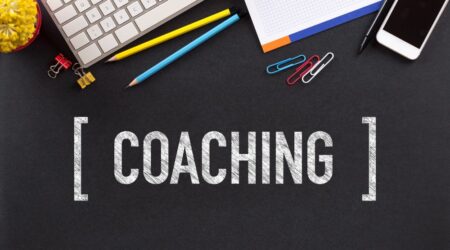Interview Questions You Need To Be Prepared For
Getting ready for a job interview can feel like prepping for a big test. You know you need to study the important stuff, but what exactly should you focus on? Well, one of the best strategies is to have solid answers ready for the common interview questions you’re likely to face. Knowing how to answer these questions can make a huge difference in how the interviewer sees you. It’s like having a cheat sheet that only you know about. So, let’s dive into the top 15 interview questions you need to be prepared for, how to tackle them, and what to do if you stumble.
1. Tell Me About Yourself
This one’s a classic opener. Your best bet? Keep it professional and brief. Highlight your recent job experience, your skills, and why you’re excited about the opportunity. Think of it as your elevator pitch.
2. Why Do You Want to Work Here?
Research the company beforehand. Show that you understand what they do and express genuine enthusiasm for their mission or products. Link their goals with your career aspirations.
3. What’s Your Greatest Strength?
Choose a strength that’s relevant to the job. If you’re applying for a sales position, you might say your greatest strength is your ability to connect with people and understand their needs.
4. What’s Your Greatest Weakness?
Pick a real weakness, but follow it up with what you’re doing to improve. For example, “I’ve struggled with public speaking, but I’ve been attending workshops to get better.”
5. Where Do You See Yourself in Five Years?
Employers want to know if you’re ambitious and if your career goals align with the company’s direction. Be honest but also show that you’ve thought about a future with the company.
6. Why Should We Hire You?
This is your chance to sell yourself. Highlight your skills and experiences that directly relate to the job. Explain how you can contribute to the company’s success.
7. Tell Me About a Challenge You’ve Faced at Work and How You Dealt With It
Pick a story with a happy ending. Describe the situation, your action, and the positive outcome. This shows your problem-solving skills.
8. What Do You Know About Our Company?
Again, research is key. Mention specific details about the company’s history, products, or values to show you’ve done your homework.
9. How Do You Handle Stress and Pressure?
Give examples of stress-management techniques you use, like prioritizing tasks or taking breaks to clear your mind. Employers want to see that you won’t crumble under pressure.
10. Describe a Time When You Disagreed With a Supervisor
Choose a story that shows you’re able to handle disagreements professionally. Explain the situation, how you voiced your concerns, and how you worked together to find a solution.
11. What Motivates You?
Your answer should reflect your professional values and show that you’re a good fit for the company culture. Maybe you’re driven by challenging projects or the chance to learn new skills.
12. How Do You Prioritize Your Work?
Talk about how you organize your tasks based on urgency and importance. Mention any tools or methods you use, like to-do lists or digital planners.
13. Tell Me About a Time You Made a Mistake
Choose a mistake that had a learning outcome. Explain what happened, what you learned, and how it improved your work or decision-making process afterward.
14. What Are Your Salary Expectations?
Do your research on industry standards beforehand. Give a range based on your research, and be open to negotiation, especially if you’re really interested in the position.
15. Do You Have Any Questions for Us?
Always have a few questions prepared. It shows you’re interested and engaged. Ask about the team you’ll be working with, the company’s future plans, or what success looks like for the role you’re applying for.
Tackling Fumbles During Interviews
Everyone messes up sometimes. If you find yourself stumbling over an answer, take a deep breath. It’s okay to ask for a moment to think. This shows you’re thoughtful and want to give a meaningful response. If you completely draw a blank, it’s perfectly fine to ask if you can come back to the question later.
Recovering From a Mistake
If you realize you’ve given a weak answer to one of the interview questions, don’t panic. You can often find an opportunity later in the interview to circle back and clarify your response. For example, you might say, “Earlier, when you asked about my greatest weakness, I realized I didn’t fully explain how I’ve been working to improve.”
Why This Matters
Being prepared for these interview questions does more than just help you avoid awkward silences. It shows the interviewer that you’re serious about the job and that you’ve put in the effort to understand what they’re looking for. Plus, it helps you feel more confident, which is always a bonus in a high-stress situation like a job interview.
In a survey by CareerBuilder, 48% of employers said that the best way to stand out in an interview is to have a solid understanding of the company. This preparation not only includes knowing how to answer common interview questions but also showing that you know what the company does and how you can contribute to its goals.
So, as you get ready for your next job interview, remember that preparation is key. Take the time to practice your answers to these common questions, and you’ll walk into your interview ready to impress.
Feeling ready to dive deeper into getting prepped for your next big opportunity? Check out our guide on Interview Preparation to ensure you’re fully equipped to land your dream job.











